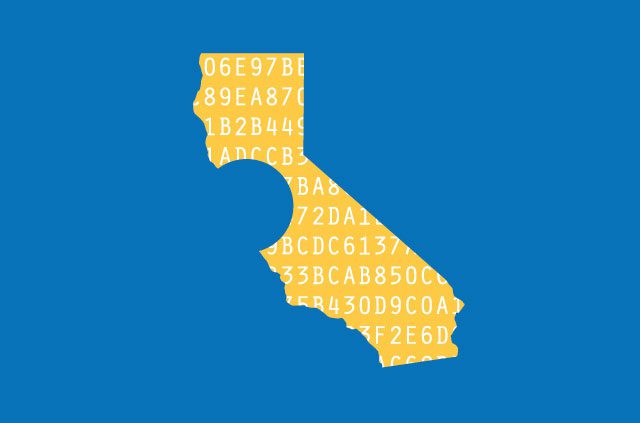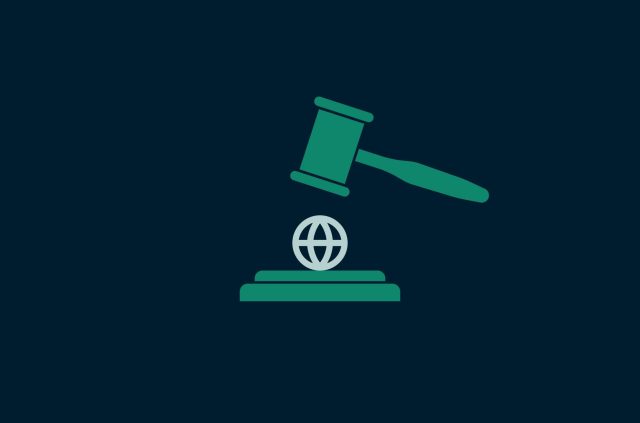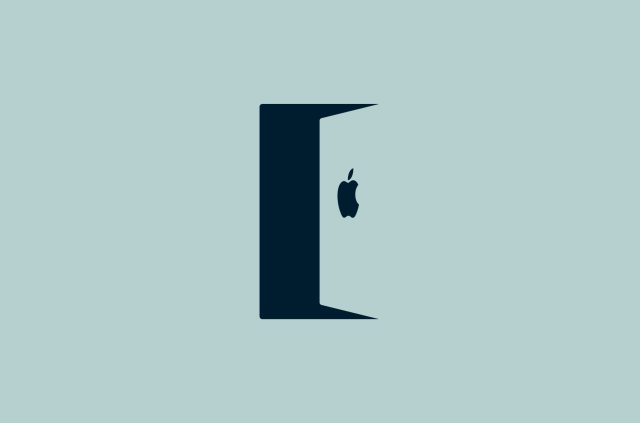30 biggest tech companies in the world 2025 (full list)


The term “Big Tech” refers to the world’s most dominant technology companies. A lot of them are household names, and there’s a good chance that you use at least one of their products or services every day.
Big tech often refers to the world’s four biggest companies: Amazon, Apple, Facebook, and Google (each valued at over 1 trillion USD). They’re also known as the “Big Four” or GAFA (an acronym for Google, Amazon, Facebook, Apple). Sometimes Microsoft is included as the fifth.
Lately, Big Tech’s tendency to collect too much personal data and prevent competition has caused concern. Their high profile also makes them prime targets for cyberattacks.
So, what are some of the biggest tech companies currently? And what privacy and security issues were they embroiled in the past? Read on to find out!
[Interested in tech? Subscribe to the ExpressVPN Blog Newsletter.]
Jump to…
1. Apple
2. Microsoft
3. Alphabet (Google)
4. Amazon
5. Tesla
6. TSMC
7. NVIDIA
8. Tencent
9. Samsung
10. Meta Platforms (Facebook)
11. ASML
12. Oracle
13. Alibaba
14. Broadcom
15. Cisco
16. Texas Instruments
17. Adobe
18. Salesforce
19. QUALCOMM
20. IBM
21. Meituan
22. SAP
23. Netflix
24. Intel
25. AMD
26. Intuit
27. Automatic Data Processing
28. Sony
29. Keyence
30. Pinduoduo
What are the best big tech companies to work for?
What is a consumer tech company?
How does Big Tech affect me?
Should Big Tech be broken up?
How to limit Big Tech in your life?
FAQ: About big tech companies
1. Apple
| Country | United States |
| Headquarter | California, United States |
| Products | iPhone, iPad, MacBook, Apple Watch, AirTag, iOS, macOS, Macintosh, Apple TV, and more |
| Market capitalization | $2.269 trillion |
| Employee size | 75,964 |
| Annual revenue | $394.32 billion |
| Stock ticker symbol | AAPL |
I bet there’s no need for a glamorous introduction for Apple. Chances are you own one of their products, and if not, you can’t go anywhere without seeing an Apple billboard, anyway.
But the tech giant isn’t exempt from controversy. Apple was put into the limelight when sued by Epic Games, the makers of Fortnite, for monopolizing mobile game transactions. (Apple requires developers to distribute apps for iOS exclusively through the App Store, where it takes a commission of 30%.) The battle still continues, as of November 2022, since both sides appealed the original ruling. The iPhone maker also worried the public when its Bluetooth accessory AirTags were being used for unwanted tracking.
2. Microsoft
| Country | United States |
| Headquarter | Washington, United States |
| Products | Windows, Microsoft Office Suite, Microsoft Azure, Skype, Linkedin, Edge, Xbox 360, Google Drive, and more |
| Market capitalization | $1.829 trillion |
| Employee size | 221,000 |
| Annual revenue | $203.07 billion |
| Stock ticker symbol | MSFT |
Microsoft has come a long way from its humble beginnings that started out of an Albuquerque garage in 1975. While mostly known for being the maker of Windows and Microsoft Office Suite nowadays, the tech giant has quietly but strategically acquired over 200 companies in various fields, with Linkedin and Skype being the notable ones. From a privacy and data perspective, the more acquisitions Microsoft makes, the more personal data it can leverage.
3. Alphabet Inc. (Google)
| Country | United States |
| Headquarter | California, United States |
| Products | Gmail, Google Chrome, Google Maps, Google Drive, Google Photos, Nest, Fitbit, YouTube, DoubleClick, Waze, and more |
| Market capitalization | $1.202 trillion |
| Employee size | 186,779 |
| Annual revenue | $282.11 billion |
| Stock ticker symbol | GOOG |
Google is best known as an internet search engine, controlling over 90% of the world's search engine traffic. But its main business is really advertising, as search ads continued to become its biggest revenue source (57.2%) in Q3 2022. And what’s fueling its ad business? Your data. That’s right, Google collects a lot of it to show you ads.
Because of that, the tech juggernaut has always come under fire over data and privacy issues, in one way or another. In November 2022, it was sued for misleading users into thinking they had turned off location tracking in their account settings while continuing to collect that information, paying a $392 million settlement to 40 states. It also misrepresented to users of the Safari Internet browser that it wouldn’t place tracking cookies or serve targeted ads to those users, and paid a record $22.5 million penalty to the Federal Trade Commission in August the same year.
Read more:
Google’s tracking cookies are going away. Is that good?
3.2 million “right to be forgotten” requests since 2014
4. Amazon
| Country | United States |
| Headquarter | Washington, United States |
| Products | Amazon.com, Amazon Prime, Fire TV, Amazon Web Services, Alexa, Ring, Audible, Whole Foods Market, and more |
| Market capitalization | $896.32 billion |
| Employee size | 1,608,000 |
| Annual revenue | $502.19 billion |
| Stock ticker symbol | AMZN |
Amazon has come under scrutiny for the vast amount of data it has garnered from partners and customers in recent years. In 2021, it was accused of using in-house sales data to identify and copy top-selling items sold on its platform and created knockoffs. In the same year, Amazon was fined $887 million by GDPR over the way it used customer data for targeted advertising purposes.
There’s something amiss about the tech giant in 2022, but it’s certainly not new. There are now more eavesdropping allegations around Alexa, the voice-assistant technology used in Amazon Echo. It seems that Alexa is collecting and analyzing voice data from all interactions, not just purchases, and sending that to ad tech vendors. If you aren’t chucking your Echo out of the house, you should at the very least learn how to delete your history on Alexa.
Read more:
How to opt out of Amazon Sidewalk and stop sharing internet with neighbors
5 ways Amazon spies on you (even if you’re not a customer)
What are Amazon authorized purchase scams?
5. Tesla
| Country | United States |
| Headquarter | Texas, United States |
| Products | Model 3, Model S, Model X, Model Y, SemiPowerwall, Powerpack, and MegapackSolar panels, Solar Roof, and more |
| Market capitalization | $474.38 billion |
| Employee size | 99,920 |
| Annual revenue | $74.86 billion |
| Stock ticker symbol | TSLA |
Tesla is a pioneer in self-driving cars as well as the world’s biggest electric car brand, as of 2022. But its troubles don’t stop piling up just because it is a reputable brand.
The electric-car juggernaut was sued by a German consumer group over privacy concerns in 2022. The sentry mode in its cars, which was used to monitor the car's surroundings, also captured data from passers-by who happened to walk past the car, violating European data privacy laws. In the same year, the electric car brand also disregarded drivers’ biometric privacy rights by scanning their faces while in their Model 3 and Model Y vehicles without asking for their consent.
Read more:
How a Tesla employee saved the company from a ransomware attack
6. TSMC (Taiwan Semiconductor Manufacturing Company)
| Country | Taiwan |
| Headquarter | Hsinchu, Taiwan |
| Products | Central processing units, graphics processing unit, chipsets microprocessors, systems-on-chip (SoCs), motherboard chipsets, network interface controllers, and more |
| Market capitalization | $396.01 billion |
| Employee size | 75,000 |
| Annual revenue | $70.44 billion |
| Stock ticker symbol | TSM |
TSMC controls 55% of the world’s contract chip manufacturing, supplying chips for Apple, AMD, Qualcomm, and others.
Although the semiconductor giant isn’t embroiled in controversy over data or privacy issues, it has been subject to cyberattacks. One such attack on its production lines halted production in three plants for up to three days. The attack was caused by a variant of ransomware WannaCry, resulting in TSMC’s loss of an estimated NT$5.2 billion. It was the largest information security incident in Taiwanese history.
7. NVIDIA
| Country | United States |
| Headquarter | California, United States |
| Products | Graphics processing units, central processing units, chipsets, drivers, Nvidia Shield, and more |
| Market capitalization | $412.94 billion |
| Employee size | 22,473 |
| Annual revenue | $28.56 billion |
| Stock ticker symbol | NDVA |
Although Nvidia is not exactly a household name to most people in the same way as Apple or Amazon, it’s much loved by video gamers for its high-end graphics processing units. These units are responsible for displaying images and performing calculations at fast speeds.
Notably, Nvidia suffered a data breach that stole credentials of some 71,000 employees in early 2022. The hackers also threatened to release Nvidia’s trade secrets. In 2016, Nvidia came under fire for allegedly gathering personal data from its users via the telemetry monitor in Nvidia GeForce Experience, an optional software that comes with the drivers of NVIDIA graphics cards. Those claims were confirmed to be unfounded.
8. Tencent
| Country | China |
| Headquarter | Shenzhen, China |
| Products | Wechat, Wechat Pay, QQ, Tencent News, Moments, QQ Music, Tencent Pictures, and more |
| Market capitalization | $389.87 billion |
| Employee size | 108,840 |
| Annual revenue | $83.64 billion |
| Stock ticker symbol | TCEHY |
Tencent is the company behind WeChat, China’s most popular messaging app. It is also a major investor of Epic Games, maker of Fortnite and PlayerUnknown's Battlegrounds. As of September 2002, the company has lost its crown as China’s biggest company to liquor giant Kweichow Moutai.
While it’s no surprise that Chinese users of WeChat are subject to censorship, the chat app was also allegedly surveilling content posted by foreign users to refine censorship in 2020.
Looking for alternate messaging apps? Our guide may just be right for you.
9. Samsung
| Country | South Korea |
| Headquarter | Suwon-si, South Korea |
| Products | Samsung Galaxy phones, Samsung Smart TV, Galaxy Z Fold 3, Galaxy Z Flip 3, Galaxy Watch 4 and Galaxy Watch Active 4 |
| Market capitalization | $304.55 billion |
| Employee size | 266,673 |
| Annual revenue | $241.60 billion |
| Stock ticker symbol | SSNLF |
It’s not news that Big Tech collects information about you. But imagine when it collects too much of that information and doesn’t do a good job with securing it. Samsung did this and its customers took it to court, holding the Korean tech giant accountable for two data breaches that stemmed from its failure to protect their data in 2022.
Using a Samsung phone? Make sure to toggle off these settings to protect your privacy.
10. Meta Platforms (Facebook)
| Country | United States |
| Headquarter | California, United States |
| Products | Facebook, Instagram, Whatsapp, Messenger, Facebook Watch, Meta Portal, Oculus, Giphy, Mapillary, Kustomer, Presize |
| Market capitalization | $317.46 billion |
| Employee size | 87,000 |
| Annual revenue | $118.73 billion |
| Stock ticker symbol | META |
Facebook is no stranger to lawsuits surrounding privacy, most notoriously being accused of giving Cambridge Analytica access to user data in 2018. Some say that the data they provided influenced the outcome of the 2016 presidential election in the U.S. That lawsuit resulted in a settlement, with the U.S. government issuing Facebook a 5 billion USD fine. Meta continued to be in hot water for privacy issues in 2022. It was fined $275 million for breaking E.U. data privacy law and 70 million for privacy violations in Korea.
The Facebook Whistleblower
In 2021, a Facebook employee-turned-whistleblower leaked documents, known as the Facebook Files, that revealed how the company consistently chose profit over public safety. The day after the whistleblower, data scientist Frances Haugen, revealed her identity on 60 Minutes, Facebook, Instagram, and WhatsApp experienced an unprecedented outage of more than six hours.
Read more:
10 times Facebook violated your privacy
Guide to Facebook’s new privacy settings
Facebook wearables are coming. Would you want them?
11. ASML
| Country | Netherlands |
| Headquarter | Veldhoven, Netherlands |
| Products | EUV (extreme ultraviolet) lithography systems, DUV (deep ultraviolet) lithography systems, refurbished systems |
| Market capitalization | $237.36 billion |
| Employee size | 32,000 |
| Annual revenue | $20.94 billion |
| Stock ticker symbol | ASML |
ASML is probably the most important tech company you’ve never heard of. It’s the only company in the world that produces and sells extreme ultraviolet lithography (EUV) machines, which are required for companies like TSMC to manufacture chips.
Like any other leading companies, ASML is subject to cybersecurity attacks. A notable attack on ASML happened in 2015, when attackers breached some of ASML’s systems. The company said no valuable information had been assessed.
12. Oracle
| Country | United States |
| Headquarter | Texas, United States |
| Products | Oracle Applications, Oracle Database, Oracle ERP, Oracle Cloud, Enterprise Manager |
| Market capitalization | $214.56 billion |
| Employee size | 143,000 |
| Annual revenue | $44.15 billion |
| Stock ticker symbol | ORCL |
Oracle is one of the world’s largest enterprise software cloud service providers. In late 2022, it was embroiled in a privacy class-action lawsuit in the US, which claimed it violated the privacy of 5 billion people across the globe. It allegedly collected detailed dossiers of those people, including their names, home addresses, emails, purchase history and real-world physical movements, income, interests, and political views.
13. Alibaba
| Country | China |
| Headquarter | Hangzhou, China |
| Products | Alibaba.com, AliExpress, Taobao, TMALL, Ant Group, Lazada, Youku |
| Market capitalization | $235.45 billion |
| Employee size | 254,941 |
| Annual revenue | $124.19 billion |
| Stock ticker symbol | BABA |
Dubbed the “Chinese Amazon,” Alibaba is China's leading ecommerce conglomerate, with hundreds of millions of users on its Taobao, Tmall and Alibaba.com platforms.
Alibaba has also expanded into other operations, like cloud computing. But the tech giant met with a challenge in July 2022, when a hacker stole information of hundreds of millions of Chinese citizens sitting on Alibaba’s cloud, apparently stored by the Shanghai police.
14. Broadcom
| Country | United States |
| Headquarter | California, United States |
| Products | 25G, 100G, and 200G OCP NIC 3.0 adapters, SAS9500 and SAS9600 family IT, MegaRAID® Storage Adapters, and PEX89000 PCIe Gen 5 PCIe Switches |
| Market capitalization | $225.14 billion |
| Employee size | 20,000 |
| Annual revenue | $31.68 billion |
| Stock ticker symbol | AVGO |
Broadcom is primarily known as an industry leader in semiconductors, but it has also acquired numerous smaller enterprises to venture into new markets. But as global antitrust regulators ramped up scrutiny of deals by big tech, Broadcom’s plan to acquire cloud computing company VMware (for a whopping $61 billion! ) was put to test with an in-depth antitrust investigation.
15. Cisco
| Country | United States |
| Headquarter | California, United States |
| Products | Cisco routers, switches, firewalls, IP Phones, wireless AP, modules and cards |
| Market capitalization | $196.40 billion |
| Employee size | 26,000 |
| Annual revenue | $52.28 billion |
| Stock ticker symbol | CSCO |
Cisco is known for its high-tech networking systems and solutions, with a client base of large corporations and governments. In May 2022, the San Jose-based tech giant suffered a data breach after ransomware attackers gained access to an employee's personal Google account. The company also violated the US False Claims Act as it failed to patch vulnerabilities in its suite of video-surveillance products while continuing to sell the devices and software to the US government, paying a settlement of $8.5 million.
16. Texas Instruments
| Country | United States |
| Headquarter | Texas, United States |
| Products | Analog chips, embedded processors, calculators, microcontrollers, and multi-core processors |
| Market capitalization | $153.87 billion |
| Employee size | 31,000 |
| Annual revenue | $20.19 billion |
| Stock ticker symbol | TXN |
Texas Instruments is a global semiconductor company that designs, manufactures, and sells analog and embedded chips. Although TI doesn't manufacture high-end chips like TSMC or Intel, their chips are widely used by a range of industries such as automotive and personal electronics. In July 2018, former CEO Brian Crutcher was dumped for violating the company’s conduct.
17. Adobe
| Country | United States |
| Headquarter | California, United States |
| Products | Photoshop, Illustrator, InDesign, PDF, Acrobat Reader, Flash, Adobe Creative Cloud, and more |
| Market capitalization | $157.38 billion |
| Employee size | 26,000 |
| Annual revenue | $17.19 billion |
| Stock ticker symbol | ADBE |
Adobe is a multinational software company that specializes in computer graphics, creative, and publishing software. In 2019, the company made headlines for exposing the information of 7.5 million customers online. That information included their email address, account creation date, subscription status, among other non-sensitive details. But it’s nowhere near the scale of the 2013 data breach which exposed nearly 3 million credit card numbers from 38 million active users. It remained to be one of the biggest cyberattacks of the 21st century.
18. Salesforce
| Country | United States |
| Headquarter | California, United States |
| Products | Salesforce Sales Cloud, Salesforce Marketing Cloud, Salesforce CPQ, Salesforce Service Cloud, Salesforce Platform, Salesforce Chatter and Salesforcework.com |
| Market capitalization | $128.27 billion |
| Employee size | 73,542 |
| Annual revenue | $29.32 billion |
| Stock ticker symbol | CRM |
Salesforce is the world's number one customer relationship management tool, which is used by businesses to garner more qualified leads and ramp up sales.
But the nature of the tool requires a huge amount of customer data to be stored on it. This means a single data breach can spell trouble for both the business and its customers. In 2019, Salesforce’s clothing client Hanna Andersson suffered a data breach. Information of more than 200,000 Hanna Andersson customers sitting on a Salesforce cloud was compromised. It was also believed that Salesforce was infected with malware, which led to the breach.
19. Qualcomm
| Country | United States |
| Headquarter | California, United States |
| Products | Gobi, IPQ, Snapdragon, Powerline, VIVE Wi-Fi Platforms, Mirasol, Pixtronix, AllPlay, 2net, Brew, HealthyCircles, QChat, QLearn, RaptorQ, Halo and WiPower |
| Market capitalization | $128.38 billion |
| Employee size | 51,000 |
| Annual revenue | $44.20 billion |
| Stock ticker symbol | QCOM |
Qualcomm is a global semiconductor company producing wireless telecommunications products related to wireless networks. Its largest customers are notably Apple and Google.
The company’s new Snapdragon 8 Gen 1 chip for smartphones flagged privacy concerns with its always-on camera capabilities. While its primary purpose was to let users unlock their phone with just a glance, the smartphone camera will follow you 24/7 and has an eye on pretty much everything you do (that includes when you’re using your phone on the toilet). The only thing you should always keep on 24/7 is your VPN.
In 2021, a security vulnerability in Qualcomm’s Mobile Station Modem (MSM) chips was discovered, affecting nearly 40% of smartphones in the market. The bug, if exploited, could access users’ text, call history, and audio conversations.
20. IBM
| Country | United States |
| Headquarter | New York, United States |
| Products | Automation, robotics, artificial intelligence, cloud computing, consulting, blockchain, computer hardware, software, quantum computing |
| Market capitalization | $125.62 billion |
| Employee size | 282,100 |
| Annual revenue | $47.09 billion |
| Stock ticker symbol | IBM |
IBM is a global cloud platform and innovations enterprise as well as the world’s largest IT and consulting services company. The IBM-owned Weather Channel mobile app was sued in 2019 for not letting users know it was selling their geolocation data to third-party companies. At last, IBM donated $1 million worth of technology to assist LA County with its coronavirus contact tracing efforts.
21. Meituan
| Country | China |
| Headquarter | Beijing, China |
| Products | Meituan, Meituan Waimai, DianPing, Meituan Youxuan, and more |
| Market capitalization | $141.30 billion |
| Employee size | 46,662 (as of 2018) |
| Annual revenue | $30.21 billion |
| Stock ticker symbol | MPNGF |
22. SAP
| Country | Germany |
| Headquarter | Walldorf, Germany |
| Products | SAP S/4HANA Cloud, SAP HANA Cloud, Concur Expense, SAP Ariba Strategic Sourcing Suite, and more |
| Market capitalization | $124.04 billion |
| Employee size | 107,415 (as of 2021) |
| Annual revenue | $32.49 billion |
| Stock ticker symbol | SAP |
23. Netflix
| Country | United States |
| Headquarter | California, United States |
| Products | Video-on-demand, film production, Netflix apps, and more |
| Market capitalization | $129.37 billion |
| Employee size | 113,000 |
| Annual revenue | $31.47 billion |
| Stock ticker symbol | NFLX |
24. Intel
| Country | United States |
| Headquarter | California, United States |
| Products | Microprocessors, chipsets, motherboards, flash memory, communications infrastructure components, and more |
| Market capitalization | $111.09 billion |
| Employee size | 121,100 |
| Annual revenue | $69.54 billion |
| Stock ticker symbol | INTC |
25. AMD
| Country | United States |
| Headquarter | California, United States |
| Products | Microprocessors, motherboard chipsets, embedded processors, graphics processors, and more |
| Market capitalization | $105.46 billion |
| Employee size | 15,500 (as of 2021) |
| Annual revenue | $22.82 billion |
| Stock ticker symbol | AMD |
26. Intuit
| Country | California, United States |
| Headquarter | TurboTax, Mint, QuickBooks,credit Credit Karma, Mailchimp, and more |
| Products | TurboTax, Mint, QuickBooks,credit Credit Karma, Mailchimp, and more |
| Market capitalization | $108.15 billion |
| Employee size | 17,300 |
| Annual revenue | $12.72 billion |
| Stock ticker symbol | INTU |
27. Automatic Data Processing
| Country | United States |
| Headquarter | New Jersey, United States |
| Products | ADP Workforce Now, RUN Powered by ADP, ADP Vantage HCM, ADP Payroll Services, ADP TotalSource, ADP SmartCompliance, and more |
| Market capitalization | $102.48 billion |
| Employee size | 60,000 |
| Annual revenue | $16.38 billion |
| Stock ticker symbol | ADP |
28. Sony
| Country | Japan |
| Headquarter | Tokyo, Japan |
| Products | Sony TVs, PlayStations, Blu-Ray Players, cameras, and more |
| Market capitalization | $97.37 billion |
| Employee size | 108,900 |
| Annual revenue | $80.87 billion |
| Stock ticker symbol | SONY |
29. Keyence
| Country | Japan |
| Headquarter | Osaka, Japan |
| Products | Sensors, machine vision systems, measuring instruments, barcode readers, PLCs |
| Market capitalization | $98.84 billion |
| Employee size | 8,961 |
| Annual revenue | $6.52 billion |
| Stock ticker symbol | KYCCF |
30. Pinduoduo
| Country | China |
| Headquarter | Shanghai, China |
| Products | Pinduoduo.com |
| Market capitalization | $110.03 billion |
| Employee size | 9,762 (as of 2021) |
| Annual revenue | $16.03 billion |
| Stock ticker symbol | PDD |
What are the best big tech companies to work for?
There are numerous factors that make a company a great place to work. They include: work environment and culture, salary compensation and benefits, work-life balance, career growth, and quality of work.
According to Glassdoor, a company review platform, here are the top five tech companies to work for, rated by their recent employees.
- NVIDIA
- HubSpot
- Box
- Salesforce
See a full list of the best companies to work for, put together by Glassdoor.
What is a consumer tech company?
A consumer tech company produces any tech products for use by consumers in the general public. Those products include: laptops, desktops, tablets, gaming computers, video game consoles, smartphones, headphones, speakers, and monitors.
Read more: 2022 gift guide: Smart home tech for everyone on your list
Which is the largest consumer tech company?
The latest consumer tech company is Apple, best known for its iPhones, iPads, and other technological gadgets. The consumer tech juggernaut claimed 51% of the smartphone market share in North America, as of 2022.
How does Big Tech affect me?
The Big Four tech companies are grouped together not just because of their staggering valuations, but because of the considerable effect they’ve had on issues of privacy, free speech and censorship, national security, and law enforcement. Of the myriad issues raised, there are three that come up consistently:
Big Tech collects and uses your personal data for profit
For the most part, Google and Facebook provide their products to users at no monetary cost—instead, you pay with your personal data. This data of your preferences and behaviors is in turn used to serve you highly targeted ads. As the saying goes, “when the product is free, you are the product.”
But the tides started to turn with the EU’s GDPR law; other countries have followed suit. The U.S. recently issued an executive order aimed at cracking down on the collection and use of consumer data and anti-competitive practices within the Big Tech landscape. Some companies are also taking the initiative. For example, Apple has battled the FBI in court to protect user privacy and has introduced privacy features such as App Tracking Transparency on iPhone.
Big Tech censorship influences what you see
Nowhere has Big Tech’s powers to limit or control what content you see been more apparent than on January 6, 2021, when Twitter and Facebook suspended Donald Trump’s accounts during and following riots at the U.S. Capitol.
But while political conservatives frequently argue that they are unfairly censored by Big Tech, at least one prominent study has shown this to be untrue. Perhaps more grim is the fact that censorship is applied to all kinds of content. According to the Electronic Frontier Foundation, the various and evolving terms of service for each platform have been unevenly enforced against a wide spectrum of people and groups.
With the reach of a public carrier and none of the restrictions or liabilities, Big Tech is curating what you see online without consequence. These private companies are driven by profit but play a large part in determining speech freedoms and democracy in most countries—however unwillingly.
Big Tech’s anti-competitive tactics mean less choice for you
Amazon has been called out for its treatment of third-party sellers, often developing its own in-house versions of popular products and offering them for free or cheap, thereby undercutting competitors. Apple and Google have both been accused of antitrust violations regarding the App Store and the Google Play Store. In response, the U.S. has introduced the Open App Markets Act in an attempt to allow smartphone users to download apps outside the Apple and Google ecosystems, and help small developers avoid the commission.
Should Big Tech be broken up?
There has been significant effort to break up Google, with the U.S. Department of Justice’s antitrust lawsuit. Microsoft faced a similar suit in the late ’90s. All of the other Big Tech companies are also in the crosshairs of the U.S. Congress.
Breaking up Big Tech, or implementing more regulations in general, would help other businesses compete and take away some of the power that Big Tech wields over our lives. However, some experts fear that breaking up big companies will inhibit innovation, while others argue that small businesses benefit from the services provided by Big Tech.
How to limit Big Tech in your life
The reach of Big Tech companies means that it’s become difficult to use the internet without interacting with at least one of them. There’s not much an individual can do about the Big Tech monopoly, but there are steps you can take to protect your privacy and your data, and embrace digital freedom without censorship.
- Make sure you’ve updated your privacy settings.
- Avoid the use of third-party cookies when you’re browsing.
- Using a VPN when accessing the internet could make your digital footprint smaller. However, Big Tech companies are able to easily connect your activity to your identity whenever you are logged in to their sites.
- Delete your Big Tech accounts. Find out how.
- Use alternative services:
Big Tech censoring you? Try a distributed social network
Best video-sharing alternatives to YouTube
The 4 best encrypted email providers for extra security
The best messaging apps for privacy and security
Do you love or hate Big Tech? Let us know in the comments!
FAQ: About Big Tech Companies
Which is the biggest tech company in the world?
What are considered big tech companies?
What is FAANG referring to?
Who is the richest tech billionaire?
Who is the youngest tech billionaire?
Take the first step to protect yourself online. Try ExpressVPN risk-free.
Get ExpressVPN















